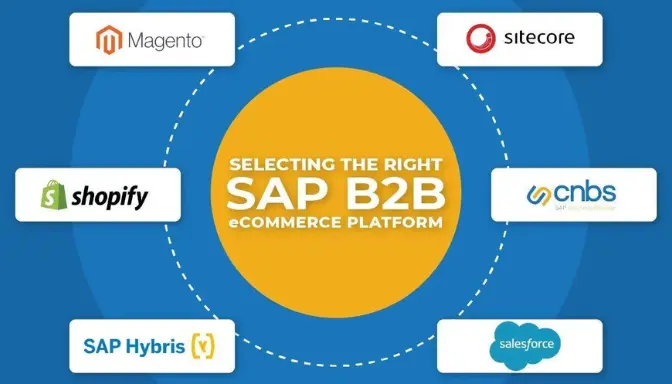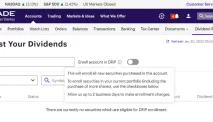However, depending on your specific business needs and goals, you may also need other features, such as:
- Marketing and analytics tools: B2B ecommerce platforms should provide you with tools to market your products or services online, and measure and optimize your B2B ecommerce performance. For example, you may need tools to create and manage landing pages, email campaigns, social media posts, or SEO strategies. You may also need tools to track and analyze your web traffic, conversions, sales, customer behavior, and feedback.
- Integration and scalability: B2B ecommerce platforms should integrate seamlessly with your existing business systems, such as your ERP, CRM, or inventory management system. This way, you can ensure that your data and processes are synchronized and consistent across your business operations. B2B ecommerce platforms should also be scalable and flexible, to support your business growth and changes over time.
- Customer service and support: B2B ecommerce platforms should provide you with customer service and support, to help you resolve any issues or challenges that you may encounter with your B2B ecommerce site. For example, you may need customer service and support to help you with technical issues, training, or updates.
Benefits of B2B Ecommerce Platforms
B2B ecommerce platforms can bring many benefits to your business, such as:
- Increased sales and revenue: B2B ecommerce platforms can help you increase your sales and revenue, by enabling you to reach new customers, markets, and segments, and by providing a more convenient and efficient way for your existing customers to buy from you. B2B ecommerce platforms can also help you increase your average order value, by offering upselling, cross-selling, or bundling opportunities, and by providing incentives or discounts for bulk or repeat purchases.
- Reduced costs and overhead: B2B ecommerce platforms can help you reduce your costs and overhead, by automating and streamlining your B2B sales processes, and by eliminating or reducing the need for intermediaries, such as sales reps, brokers, or agents. B2B ecommerce platforms can also help you reduce your inventory and logistics costs, by enabling you to manage your stock levels and deliveries more efficiently and accurately.
- Improved customer experience and loyalty: B2B ecommerce platforms can help you improve your customer experience and loyalty, by providing a more personalized, relevant, and convenient shopping experience to your B2B buyers, and by offering more value and benefits to them, such as faster delivery, better service, or loyalty programs. B2B ecommerce platforms can also help you improve your customer retention and satisfaction, by enabling you to communicate and interact with your customers more effectively, and by providing them with more feedback and support options.
Trends of B2B Ecommerce Platforms
B2B ecommerce is constantly evolving and changing, as new technologies, customer expectations, and market conditions emerge. Some of the current and future trends of B2B ecommerce that you need to be aware of and adapt to are:
- Mobile optimization: More and more B2B buyers are using their mobile devices to research and purchase products or services online. According to a Google study, 50% of B2B queries are made on smartphones, and this number is expected to grow to 70% by 2023. Therefore, it is essential that your B2B ecommerce site is optimized for mobile use, to provide a smooth and seamless experience to your mobile customers, and to avoid losing them to your competitors.
- Social commerce: Social media platforms are becoming more influential and popular in B2B ecommerce, as they provide a way for B2B buyers to discover, research, and engage with B2B sellers, and to purchase products or services directly from them. According to a Hootsuite study, 75% of B2B buyers use social media to support their purchase decisions. Therefore, it is important that you leverage social media platforms to market your products or services, and to integrate them with your B2B ecommerce site, to enable social commerce for your customers.
- Personalization: B2B buyers are increasingly demanding and expecting a more personalized and tailored shopping experience, similar to what they get in B2C ecommerce. According to a Salesforce study, 72% of B2B customers expect vendors to personalize engagements to their needs. Therefore, it is crucial that you use data and analytics to understand your customers’ preferences, behaviors, and needs, and to provide them with personalized offers, recommendations, and content, to increase their engagement and loyalty.
- Omnichannel sales: B2B buyers are using multiple channels and touchpoints to research and purchase products or services online, such as websites, marketplaces, social media, email, chat, or phone. According to a Forrester study, 74% of B2B buyers research at least half of their work purchases online. Therefore, it is vital that you provide an omnichannel sales strategy, to ensure that your customers have a consistent and seamless experience across all channels and touchpoints, and to increase your sales opportunities and conversions.
- Headless commerce: Headless commerce is a type of ecommerce architecture, where the front-end (the presentation layer) and the back-end (the business logic layer) of an ecommerce site are decoupled and separated. This allows for more flexibility and customization of the front-end, without affecting the back-end, and vice versa. Headless commerce is a trend that is gaining traction in B2B ecommerce, as it enables B2B sellers to provide a more dynamic and innovative customer experience, and to adapt to changing customer needs and market conditions faster and easier.
Conclusion
B2B ecommerce is a huge and growing opportunity for businesses, but it also requires a lot of planning and preparation. Choosing the best B2B ecommerce platform for your business is one of the most important decisions that you need to make the most out of your B2B ecommerce site. You need to consider the features, benefits, and trends of B2B ecommerce, and how they align with your business needs and goals. You also need to compare different B2B ecommerce platforms, and evaluate their pros and cons, before making a final decision.






